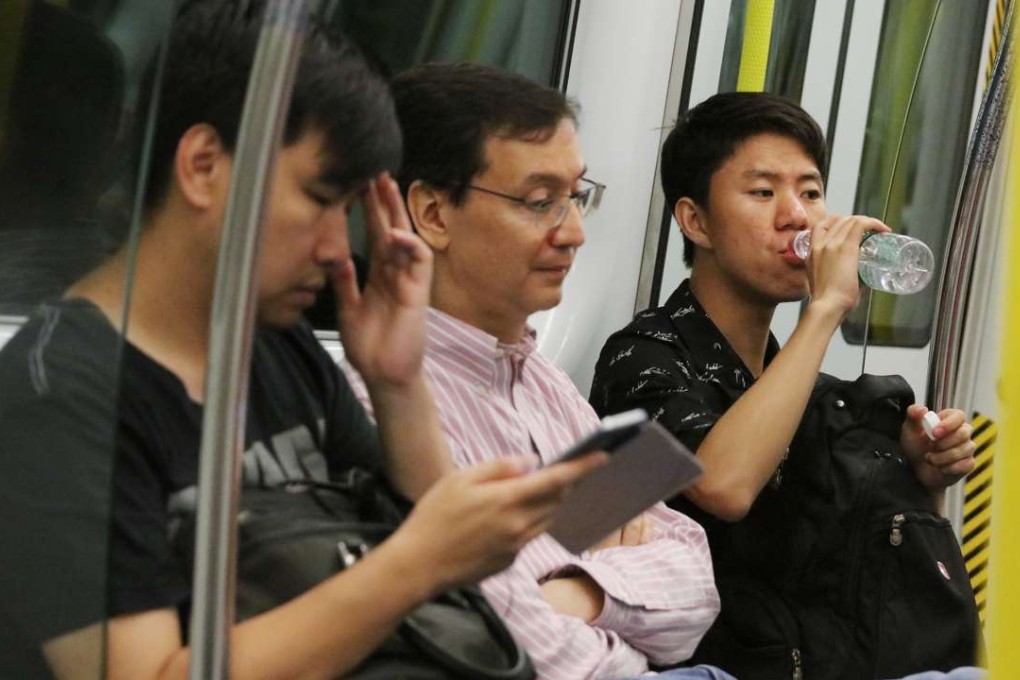Hong Kong’s MTR to ease rules on swearing and filming (but eating on trains still forbidden)
Rail operator plans to maintain hard line on eating, drinking and carrying oversized luggage, saying some passengers carry replica swords and refrigerators

Hong Kong’s railway operator is proposing to show more tolerance towards passengers swearing on trains and lift a ban on filming with mobile phones under a long-overdue review of its decades-old by-laws.
At the same time, the MTR wants to maintain its ban on eating, drinking and carrying oversized luggage on trains, although exceptions will be made in special circumstances for passengers who genuinely need to hydrate while commuting.
The city’s biggest public transport operator is due to submit a paper to the Legislative Council soon outlining its proposed changes after sounding out lawmakers and frontline staff.
The railway firm has not reviewed its by-laws since they were combined with those of the former Kowloon-Canton Railway Corporation when the two operators merged in 2007.